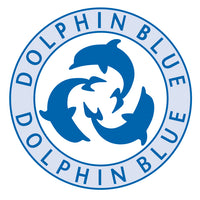Most people don't change overnight -- but then again, most people aren't like Ray Anderson. He was in his 60's when The Ecology of Commerce, a book by Paul Hawken, fortuitously landed on his desk. The founder of Interface Inc., the world's largest producer of commercial floor coverings, Anderson thumbed through it, hoping to glean a nugget of inspiration for an upcoming speech he was giving on his company's environmental vision. What he found was more than a nugget -- and way more than something for a one-time-only presentation.
Realizing that working in a sustainable way was not only good for the environment but made good business sense, Anderson asked Interface's engineers to find out what resources had been stripped from the earth to make the company's products and ultimately boost the bottom line. For around $800 million in revenue, they had used some 1.2 billion pounds of raw materials, most of it oil and natural gas. Of that finding, he's said: "I was staggered. I wanted to throw up. My company's technologies and those of every other company I know of anywhere, in their present forms, are plundering the earth. This cannot go on and on and on. "
Then he did something many other business leaders only talk about: He changed.
It started with Mission Zero, which is Interface's promise to eliminate any negative impact the company has on the environment by the year 2020. So far, they're on course to do just that, redesigning processes and products, creating new technologies, and increasing the use of renewable materials to get closer to the goal of closed-loop manufacturing.

It's a remarkable feat in the carpet industry, one that relies so heavily on petroleum. But if the behemoth company with sales in 100 countries and manufacturing facilities on four continents can do it, others can surely follow suit.
Anderson makes it clear that while he may be an environmentalist who has traded in the luxury cars for a Prius and owns a solar-powered vacation home in the mountains, that doesn't mean he's not a businessman -- something he writes about in his 2009 book, Confessions of a Radical Industrialist: Profits, People, Purpose -Doing Business by Respecting the Earth. Indeed, some of the changes Interface has instituted have been expensive up-front, but they're all paying off in the long run.
In 1997, Anderson laid out the company's vision, and over a decade later, it still resonates: "If we're successful, we'll spend the rest of our days harvesting yesteryear's carpets and other petrochemically-derived products and recycling them into new materials and converting sunlight into energy, with zero scrap going to the landfill and zero emissions into the ecosystem. And we'll be doing well - very well - by doing good. That's the vision. "
To learn more about Interface's sustainability initiatives, visit www.interfaceglobal.com.
Thomas Kemper
President and Founder, Dolphin Blue
